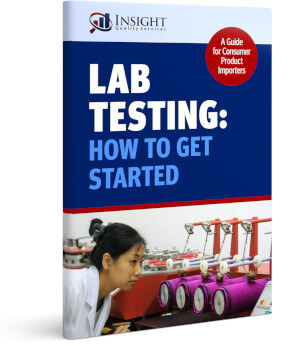De Minimis Exemption: Big Changes Coming for Small US Importers
If your business relies on small shipments into the U.S. under $800, you’re probably familiar with the de minimis exemption.
In September, the Biden-Harris Administration released a statement from the White House about upcoming changes that will impact those relying on this exemption. These changes mean that shipments may face increased scrutiny for regulatory compliance and could be subject to tariffs.
In this video, Billy Miner and Andy Church discuss the de minimis exemption and how it affects U.S. importers. So, let’s get into it! (Transcript follows)
Table of Contents
What is the De Minimis Exemption?
Thank you for joining me today, Andy. There’s been a lot of talk lately about the de minimis exemption, and it’s definitely something that will affect U.S. companies importing goods from abroad. Let’s start by explaining what it is. Andy, could you tell us what exactly the de minimis exemption is?
Absolutely, Billy. The de minimis exemption applies to shipments worth less than a certain amount, which is currently $800. Essentially, anything entering the U.S. under this exemption isn’t subject to the same scrutiny as, say, a container load of goods.
What is Changing About the Exemption?
Well, when I say these shipments aren’t subject to the same level of U.S. requirements as a container, that applies not only to duties (essentially a tax or tariff on goods) but also to regulations. For instance, goods entering in large containers are subject to oversight by agencies like the CPSC.
If you’re bringing in children’s apparel in a container, you may need to provide a Children’s Product Certificate (CPC). Currently, shipments under the de minimis exemption don’t require such documentation. So, goods valued at less than $800 aren’t subject to duties, taxes, or consumer protection regulations that would apply to other goods.
Should U.S. Importers be Concerned About the Changes?
These changes seem aimed at companies like Temu and Shein in China, but U.S. companies will also be affected. Why should U.S. importers be concerned about these changes to the de minimis exemption?
U.S. importers need to be aware so they can plan ahead and ensure their goods won’t be held up at customs due to non-compliance. In the end, these changes make things safer for consumers.
While smaller importers may be concerned, larger importers and retailers support the requirement that all goods entering the U.S. be subject to the same level of scrutiny and compliance requirements.
How Should Companies Prepare for the Exemption?
The best approach is to ensure that your goods are regulatory compliant. This involves conducting lab tests on your products and working with your supplier or factory to confirm compliance.
Some goods require specific certificates, like a General Certificate of Conformity (GCC) or a Children’s Product Certificate (CPC), to meet U.S. regulations.
Be sure to have any necessary documentation ready for customs, duties, and other regulatory requirements that apply to larger shipments.
Anything Else to Add about Testing and Certificates?
Certainly. Insight started as an inspection-only service provider over 10 years ago, but now we help clients of all sizes with their testing requirements. We offer testing capabilities in Guatemala, China, India, Vietnam, and other countries.
We also have a partnership with an online platform to help manage and provide certificates required for shipments.
Preparing for these likely changes in the de minimis exemption? Reach out to Insight—we’d be happy to walk you through what’s currently required and what might be needed once the changes take effect.
Thank you for joining us today! If you have questions about compliance or need help testing your products to ensure they meet U.S. regulations, reach out to us.






0 Comments